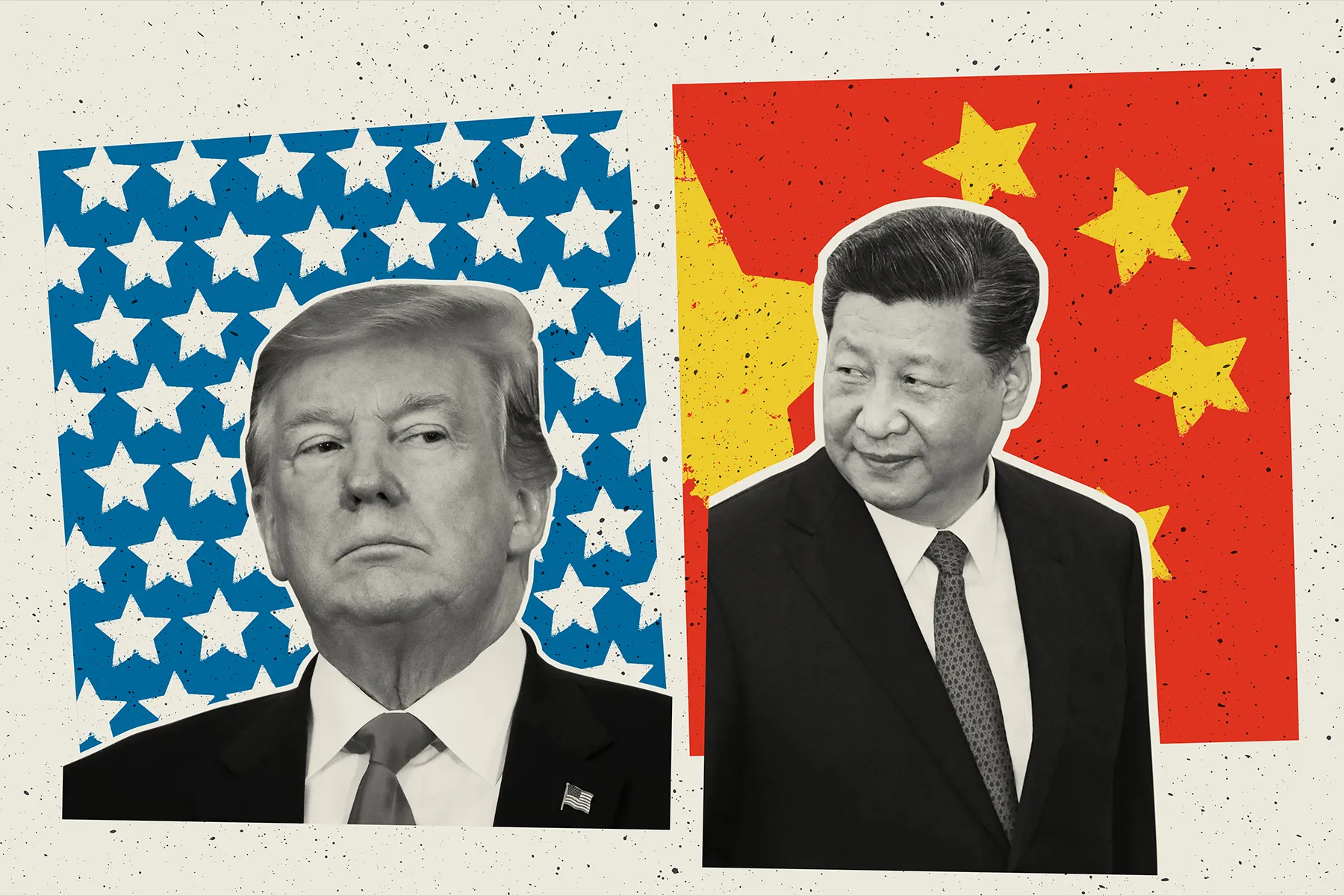Forget missiles and military standoffs. The most powerful weapon today isn’t nuclear—it’s data.
We’re living through a new kind of Cold War. This time, it’s not about who has the most tanks or bombs. It’s about who controls the world’s information, shapes the digital future, and dominates the global tech stack. And the two biggest players in this quiet but fierce war?
The United States and China.
This battle isn’t fought on battlefields. It’s being fought in code, in microchips, in AI labs, and on our smartphones.
Data Is the New Oil—And the World Is Running on It
Every click, swipe, and search generates data. What we watch, where we go, what we buy, and even how we think—data knows all. And in today’s world, whoever owns that data, wins.
Big data isn’t just about ads or social media algorithms. It powers artificial intelligence, surveillance, economic decisions, defense systems, and even political campaigns. That’s why controlling data flows and digital infrastructure is now a geopolitical strategy, not just a business plan.
And right now, China and the U.S. are racing to be the global data superpower.
China’s Rise: Not Just About Factories Anymore
For years, people thought of China as the world’s factory. Cheap labor, fast production, and endless exports. But that picture is outdated.
Today, China is building a tech empire—with homegrown giants like Huawei, Tencent, ByteDance (TikTok), and Alibaba. It’s heavily investing in artificial intelligence, 5G, surveillance tech, and smart cities. The Chinese government isn’t just supporting these efforts—they’re strategically controlling them.
And here’s the thing: data collected by Chinese companies doesn’t stay private. Under China’s laws, the government can demand access to any data they want. That has the U.S. and its allies worried—for good reason.
The U.S. Strikes Back—Digitally
The U.S. isn’t sitting quietly either. Washington sees China’s digital expansion as a major threat—not just to its own national security, but to the global balance of power.
That’s why the U.S. has:
- Banned or limited Chinese apps like TikTok and WeChat
- Blocked Huawei from building 5G networks in allied countries
- Placed export controls on advanced semiconductors and chip-making machines
- Poured billions into its own AI and quantum computing sectors
This isn’t just about economics—it’s about who sets the rules of the digital age.
From Hardware to Influence
What makes this digital Cold War so complex is that it’s not just about devices—it’s about influence.
China is exporting its digital model to countries in Africa, Asia, and the Middle East. Through the Digital Silk Road, part of its Belt and Road Initiative, it’s helping countries build internet infrastructure—with strings attached. Chinese-made surveillance cameras, smart city systems, and telecom networks are now everywhere.
This allows China to shape how data flows, how systems work, and possibly, how people are watched and controlled.
The U.S., meanwhile, is trying to promote an open internet model—one based on free speech, privacy, and market competition. But critics argue that American tech giants also hoard massive amounts of data, profit from surveillance capitalism, and aren’t always held accountable either.
So it’s not just U.S. vs. China. It’s two very different visions for the digital world.
AI: The New Arms Race
Artificial Intelligence is the front line of this data war. AI needs tons of data to learn, improve, and make decisions. The country that dominates AI won’t just win tech—it could dominate defense, economics, healthcare, and politics.
China has a clear plan: it wants to be the world’s AI leader by 2030. It’s training algorithms on massive datasets, often collected from its 1.4 billion citizens—many of whom have no say in how their data is used.
The U.S. has the talent, the capital, and the head start—but it’s also battling internal issues like lack of regulation, political gridlock, and growing distrust in Big Tech.
The AI race isn’t just about being first. It’s about what kind of world we build with it.
The Risk of a Digital Divide
As these two giants compete, the rest of the world is caught in the middle.
Countries are being forced to choose sides:
- Use Huawei and risk U.S. sanctions
- Use U.S. tech and risk Chinese backlash
- Or try to walk a dangerous line between both
This is creating a global digital divide—where infrastructure, standards, and values differ based on who built them.
If this continues, the internet could split into two separate worlds: one led by the U.S., one by China. That’s a dangerous road, not just for technology, but for freedom, democracy, and global cooperation.
Conclusion : This War Is Quiet—but Far from Harmless
There may never be bombs in this new Cold War. But the impact could be just as powerful.
The battle for data is a battle for power, control, and the future of humanity. It shapes how we work, live, communicate, and even think.
We need to ask:
- Who’s collecting our data?
- Who controls the tech we rely on?
- Who benefits from this digital war—and who gets left behind?
This isn’t a fight we can ignore. Because whether we like it or not, we’re all part of it.
And if we don’t pay attention, we won’t even realize who’s winning—until it’s too late.

